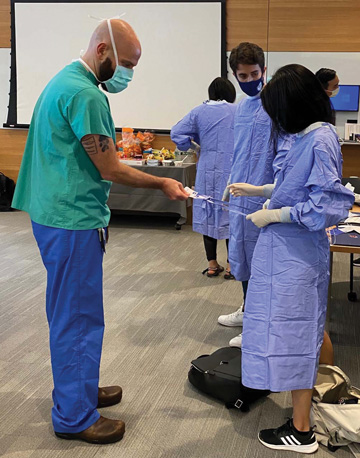The Center for Surgical Health at Penn Medicine in Philadelphia is run by providers who want to improve the care of vulnerable individuals and under-resourced communities. They connect patients to world-class surgical care, a pathway that is often out of reach for this population. The team is comprised of Penn surgeons, residents, nurses, medical students, social policy and practice and law students, who help navigate each patient through the surgical continuum, connect them to world-class surgical care, and deliver social support through a comprehensive patient navigation program. They’re all enthusiastic and passionate about caring for underserved individuals. They lean into the relationships with patients who are desperately in need of support.
The program ensures procedures suitable for the ambulatory setting are performed in outpatient ORs, which decreases staffing costs and provides a new access point into sustainable, high-value surgical care for patients who typically rely on the ER for treatment. Top surgeons at Penn who perform a wide range of procedures, from general abdominal cases to treatment of peripheral vascular disease, are available to meet the surgical needs of the center’s patients.
.svg?sfvrsn=be606e78_3)

.svg?sfvrsn=56b2f850_5)